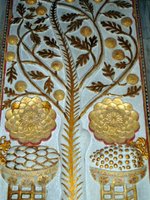
Khaled al-Azm was born in his old house in Damascus, Souq Sarujah, in November 6th, 1903 to one of the most prestigious families in all of Syria. In addition to their role in society, they were the traditional governors of Damascus in the eighteenth century. His father, Muhammed Fawzi Pasha al-Azm, was an Arab Parliament member in the Ottoman Empire, a Minister of Religious Endowments (1912), and one of King Faisal closest confederate during years of the Arab Government.
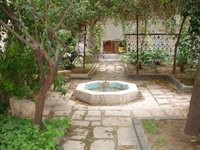
Growing up mostly in Damascus, He studied Law in the Syrian Law School in Damascus. He did not seem to have any political goals but rather pursuing a career as an industrialist. In 1927 he co-founded the first Chamber of Agriculture in Damascus, and was selected to the Damascus Municipality Council.
Entering the political arena in 1939, he was appointed Minister of Justice, and Foreign Minister, [PM: Nassoh Bukhari]. A cabinet that didn't last more than 94 days.
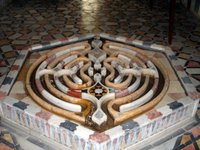
In April 1941 he became Prime Minister for the first time, in Addition for him being Prime Minister he was the Minister of Interior, a cabinet that survived one of the most dangerous and complex periods of the French mandate, and succeeded in keeping Syria neutral under enormous pressure from the [Vichy French Government.] and its German ally, and The Allied Forces [De Gaul and the UK] to enter the WWII conflict. The cabinet resigned in September 14th, 1941. Soon after the allied forces entered Damascus.
In 1943 he was elected to the Parliament as a part of the National Bloc List, and soon after he was appointed Minister of Finance, [PM: Saad-Allah al-Jaberi]. Once again to resign in September 1944. And to be appointed in two days later as Minister of Finance, and Minister of Rations [PM: Fares al-Khouri] but again, resigned soon after.
After the independence, he took part in the 1946 cabinet, being Minister of National Economy and Minister of Justice [PM: Saad-
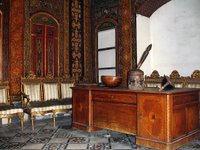
Allah al-Jaberi]. again to resign in December the same year.
In May 1947 he left to Paris where he was appointed as a Commissioner Minister in Paris, Brussels and Bern.
Back to Damascus in 1948 to be chosen again to form a cabinet where he took two seats, Minister of Foreign Affairs and Minister of National Defence.
He was arrested after Husni al-Zaim coup and then put under house arrest until Sami Hennawi did his coup in August 13, 1949.
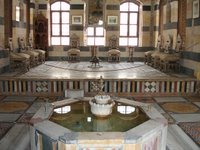
Then he was chosen for the third time as a Prime Minister after the Shieshakly coup in December 1949 in addition to being a Minister of Foreign Affairs. Again resigning in May 1950. Then again a Prime Minister in April 1951, and a Minister of Foreign Affairs. then months later resigned because of Shieshakly involvement.

After the end of the series of coups in 1954, he was elected again to the parliament.
In 1955 he joined the cabinet again to be Minister of Foreign Affairs, [PM: Sabri al-Asali].
He resigned after Kuwatly was elected president.
In 1957 he joined yet another cabinet as a Minister of State and an Under Secretary of National Defence. Soon to be a Minister of National Defence. [PM: Sabri al-Asali].
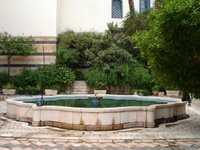
He was the only Minister who agreed to the Syria-Egypt Union agreement with reservation. After the separation, he was elected once again to the parliament. He was again under arrest after the March 28th, 1962 coup. Again after a failing coup, he went back to be a Prime Minister in September 17th, 1962... until March 7th, 1963.
Escaping to the Turkish Embassy in March 8th, 1963. Azm moved to Beirut where he spent his last days.
He died in Beirut in February 18th, 1965... and was buried in Oza'ey, Beirut.
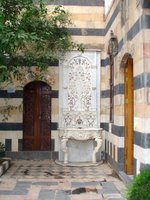
It is nice to mention that when the French troops set out an armed attack on the Parliament building and other government buildings through out the city including Citadel of Damascus, killing and wounding thousands of innocent people, Khaled al-Azm opened his house doors wide for all those seeking refuge, workers, soldiers, normal people including government ministers like Jamal Mardam, where he brought in over than 100 refugees.
His house now is the Museum of the History of Damascus and adjoins the Centre For Historical Documents.















